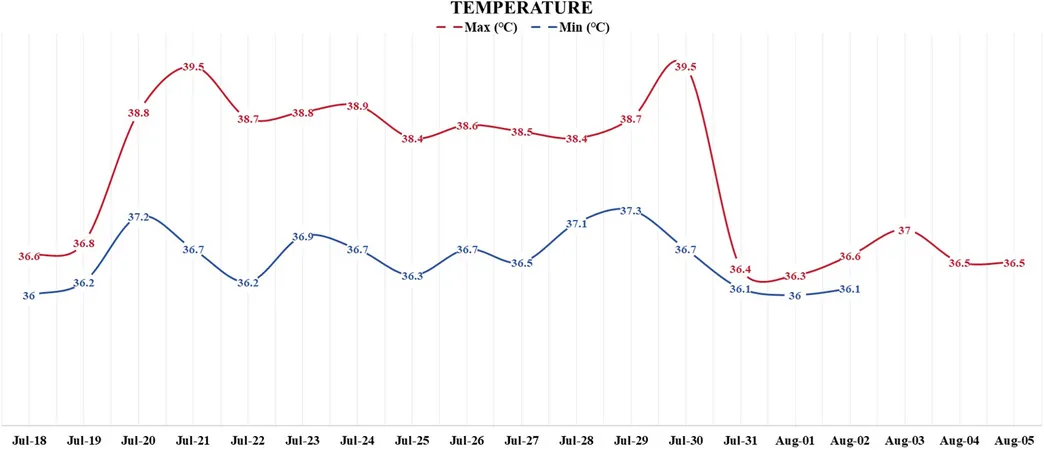
Endometriosis Linked to Increased Risk of Arthritis and MS: What You Need to Know!
2025-04-28
Author: Arjun
Groundbreaking Research Uncovers Link Between Endometriosis and Autoimmune Diseases
A groundbreaking study published in *Human Reproduction* has revealed alarming news for women with endometriosis: they may be at a significantly higher risk for developing various autoimmune and autoinflammatory diseases, including arthritis and multiple sclerosis! This unprecedented research not only dives into the clinical associations but also explores the genetic underpinnings behind these health issues.
What Were the Key Findings?
The study identified a startling 30-80% increased risk of autoimmune diseases such as rheumatoid arthritis and coeliac disease among women with endometriosis. It also highlighted a genetic correlation suggesting that these conditions share a common biological basis. The research specifically indicated significant links between endometriosis and diseases like osteoarthritis, rheumatoid arthritis, and even psoriasis.
Understanding the Biological Basis
While previous studies hinted at these connections, this research employs in-depth genetic analyses to establish a potential causal relationship between endometriosis and rheumatoid arthritis. It suggests that the presence of one disease may actually promote the development of the other, a revelation that could transform treatment strategies.
Massive Data-Driven Study
Using data from the UK Biobank—one of the world's largest health databases—the researchers analyzed over 8,000 endometriosis cases alongside 64,000 cases of immunological diseases. This in-depth look included genome-wide association studies and advanced analyses to unravel the genetic links that tie these conditions together.
Implications for Women’s Health
This research shines a light on the shared biological mechanisms between endometriosis and various immune diseases, opening doors for innovative therapeutic approaches. Early detection of immune-related conditions in women with endometriosis could drastically enhance patient care and outcomes. Dr. Nilufer Rahmioglu from the University of Oxford emphasized the need for female-specific genetic studies to further unravel why these conditions disproportionately affect women.
The Call for More Research
Janet Lindsay, CEO of Wellbeing of Women, echoed the urgency of increasing investments in women's health research, highlighting that endometriosis affects 1 in 10 women globally. Faster diagnosis and personalized treatment pathways could emerge from this critical research, but only if we channel more funding into understanding these complex interrelations.
The Path Forward
The research team plans to delve deeper into therapeutic strategies that could target both endometriosis and related immune conditions simultaneously. Future studies focused on identifying biomarkers and conducting clinical trials will be essential in transitioning from understanding these genetic links to implementing actionable healthcare solutions.




 Brasil (PT)
Brasil (PT)
 Canada (EN)
Canada (EN)
 Chile (ES)
Chile (ES)
 Česko (CS)
Česko (CS)
 대한민국 (KO)
대한민국 (KO)
 España (ES)
España (ES)
 France (FR)
France (FR)
 Hong Kong (EN)
Hong Kong (EN)
 Italia (IT)
Italia (IT)
 日本 (JA)
日本 (JA)
 Magyarország (HU)
Magyarország (HU)
 Norge (NO)
Norge (NO)
 Polska (PL)
Polska (PL)
 Schweiz (DE)
Schweiz (DE)
 Singapore (EN)
Singapore (EN)
 Sverige (SV)
Sverige (SV)
 Suomi (FI)
Suomi (FI)
 Türkiye (TR)
Türkiye (TR)
 الإمارات العربية المتحدة (AR)
الإمارات العربية المتحدة (AR)